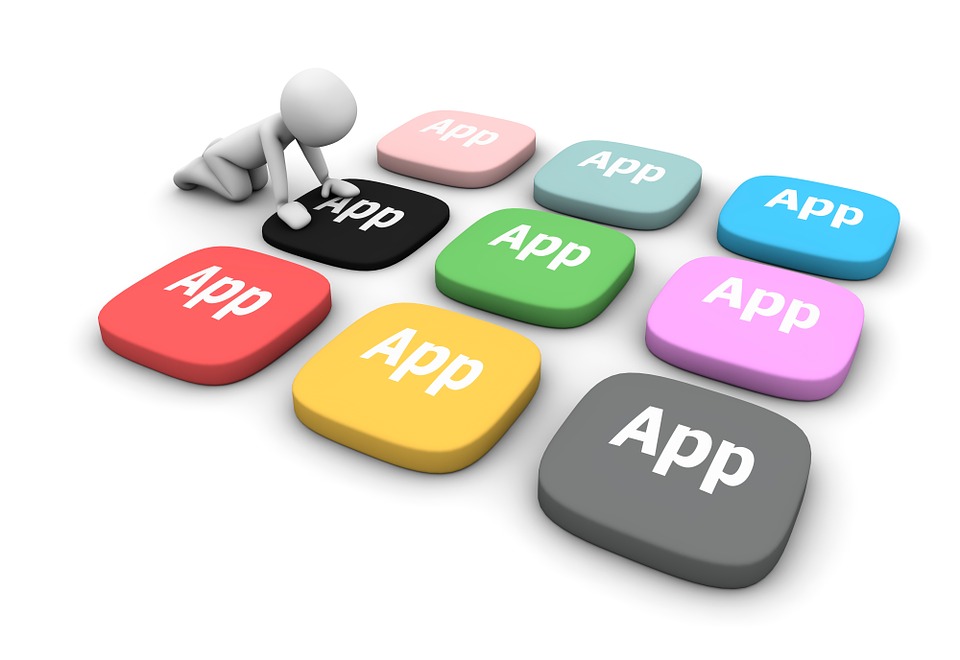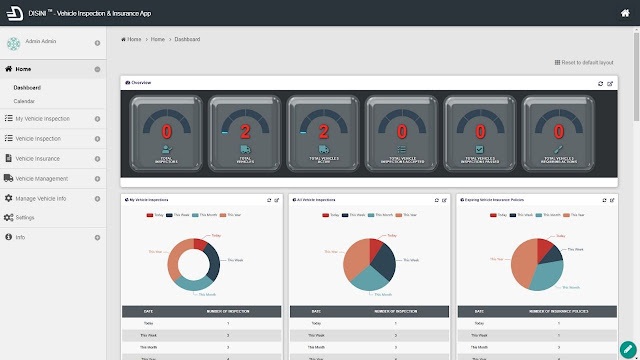What Enterprise Apps Can You Create with Joget Workflow? Here's a List of Ideas
TL;DR
Some of the types of apps you can create using Joget Workflow include business process/workflow, scheduling/bookings, collaboration, request, tracking, management, submission, approval, information/notification, analytics, security, and financial applications.
It's the era of the Internet of Things (IoT) and the market demand for enterprise applications is skyrocketing. Technology costs are going down and organizations are realizing the importance of offering their employees the freedom to choose the devices and apps they want to work with.
Gone are the days when workers had to sit all day in front of a traditional desktop computer. They now prefer a smart approach to work and enterprise applications are at the center of it all. Gartner even predicts that by the end of 2017, the market demand for this type of apps will grow at least five times more than IT teams’ ability to deliver them.
But here's the long and short of it:
Despite this uptrend in enterprise apps demand, your app must be based on a viable idea for it to be used. At Joget, we've always advocated choosing your app ideas with great meticulosity, vision, and strategic thinking. So today, we're offering you a cheat sheet for some broad-brush enterprise app types so you can have a ready-made, off-the-rack list of app ideas you can quickly turn to for immediate inspiration. Here it comes:
1. BUSINESS PROCESS/WORKFLOW APPS

Business process and workflow applications are used to carry out or enhance a set of related tasks, performed to accomplish a specific organizational goal. They help you, mostly in an automated manner, to complete a series of logically structured activities that produce a specific service or product in the end.
An example is when a purchase order (PO) is created to be approved and issued to a vendor. The PO would usually have to go from one desk to another internally. If done manually, this process can take weeks or even months to get to the final approver. But with a process-driven application for processing POs, you can procure goods much quicker than ever, every time.
‘Every time’ because with business process/workflow applications, repeatable business processes can be completed following the same pre-set pattern, which goes to save costs of time and money, remove redundancies, and improve operational efficiency.
2. SCHEDULING/BOOKINGS APPS

In your organization, if you're always making arrangements so that people can use, do, or have something at a later time, then you probably need a scheduling/bookings app.
This type of applications allows workers to register for some future activity or condition, schedule engagements, set aside time for something, or reserve something (such as a room or seat) in advance… even on the go. And once those have been approved, or if any changes occur, they can be alerted instantly.
3. COLLABORATION APPS

Collaboration apps are useful for allowing individuals and departments to team up to accomplish an end.
Without the right tools, collaboration can be ineffective. But apps of this nature not only enhance collaboration but also help in providing a better visibility of activities among collaborators, drive innovation, and maintain a people-oriented culture in an organization. Additionally, collaboration apps help off-site teams to easily connect with the team back at base on a regular basis.
4. REQUEST APPS

Request apps enable workers and departments to request for something without the usually expensive and space-eating paperwork.
Requests made via apps can range from employee-specific requests like HR-related requests (e.g., leave, health claims, and promotions) to general requests like service, equipment, or information requests. You can create several different request apps for different purposes.
Take a cue from Blue Bird Group. The company uses Joget Workflow to build a helpdesk system for managing all SAP system requests, which are put through a rigorous approval cycle prior to development.
5. TRACKING APPS

Tracking apps are great for tracking, monitoring, and controlling things like processes, orders, workflows, requests, documents, employee activities, etc.
For instance, we do have a ready-made app on the Joget Marketplace called Simple Inventory Tracking. Users can use it to control and track office stationeries, consumables, and computer equipment for free.
6. MANAGEMENT APPS

Management apps have several use cases. For one, you can create an app for managing projects, activities, or assets. Another example is building a customer relationship management (CRM) solution to allow authorized employees quick access to customer data (e.g., contact information, sales history, etc.) from anywhere and at any time so as to improve overall customer satisfaction and increase retention rate.
We even have a Job Recruitment Management app for easily managing a job recruitment from start to finish.
7. SUBMISSION APPS

In the day-to-day operation of a business, different documents usually need to be submitted for vetting, approval, and more. As a 21st century organization that understands the limitations of the paper-based system, you will need an app for enabling submission of documents and reports. The submitted files can be routed to the appropriate persons for further actions.
8. APPROVAL APPS

Manual approvals are the bottleneck of many businesses: they lead to unnecessary wait-times.
If a document, decision, or request needs to be manually approved by a manager, it would have to wait until the manager returns from their two-week vacation from the Sacred Valley.
An app which allows approvers to initiate approvals from anywhere, anytime can be a great time-saver or even godsend.
9. INFORMATION/NOTIFICATION/TUTORIAL APPS
Keeping all the workers and stakeholders updated about happenings in the company can feel like a herculean task if it is done the traditional way.
An app that displays internal announcements and news can be an effective way to keep everyone in the loop. The app can provide general information covering the whole organization or serve a particular team. For instance, an app that provides inventory information can be of great benefit to the sales team. They can use it to provide real-time demand information to clients on the phone.
You can also build apps for notifications. A perfect example is when a customer submits a support ticket; an internal notification app can notify the appropriate team to quickly take action on the ticket to attain greater customer satisfaction.
To enable notifications in Joget Workflow apps, you can use any of our notification tools like the Slack Notification Plugin, Slack Webhook Plugin, or Mobile Push Notification Plugin.
10. ANALYTICS/REPORTING APPS

Analytical applications are useful for capturing statistics and analyzing reports.
For example, Baosteel Construction, a company specializing in structural steel, needed a system for capturing employee and department satisfaction. They reached out and used Joget Workflow to create the system. Now the company's management and HR department are able to capture staff satisfaction for statistical analysis and reporting.
11. SECURITY APPS

There might be situations where you need apps for controlling access to certain systems.
Whether it is to create user IDs, set access permissions, or trail user activities within those systems, Joget Workflow can come in pretty handy.
12. FINANCIAL/ACCOUNTING APPS

Finance holds an important place in business. Financial/accounting applications not only improve efficiency and overall performance of financial operations but also eliminate errors while saving you money.
For instance, accounting activities like invoice processing and account receivables are usually considered tedious and boring. A well-built system can save your accounting team from these problems while making their work exciting.
Apart from our Simple Invoicing app (which comes with receipt management and can be used as a template to create your own accounting apps), we also have the HR Expenses Claim app. It allows users to make expenses claims which must be approved before it goes to Finance.
CONCLUSION
All these are some of the types of apps you can create using Joget Workflow, an open source platform to easily build enterprise web apps for cloud and mobile.
Generally speaking, the apps you create should stick to solving YOUR organization's problems. The ideation should be custom-tailored to meet your business's specific needs.
This list is only suggestive but not exhaustive. It's meant to give you a general idea of what is possible.
So while these ideas are a good place to get thinking, it's crucial you ideate and build your apps with your organization's needs in mind and also consider existing workflows and culture within the company.
Gone are the days when workers had to sit all day in front of a traditional desktop computer. They now prefer a smart approach to work and enterprise applications are at the center of it all. Gartner even predicts that by the end of 2017, the market demand for this type of apps will grow at least five times more than IT teams’ ability to deliver them.
But here's the long and short of it:
Despite this uptrend in enterprise apps demand, your app must be based on a viable idea for it to be used. At Joget, we've always advocated choosing your app ideas with great meticulosity, vision, and strategic thinking. So today, we're offering you a cheat sheet for some broad-brush enterprise app types so you can have a ready-made, off-the-rack list of app ideas you can quickly turn to for immediate inspiration. Here it comes:
1. BUSINESS PROCESS/WORKFLOW APPS
Business process and workflow applications are used to carry out or enhance a set of related tasks, performed to accomplish a specific organizational goal. They help you, mostly in an automated manner, to complete a series of logically structured activities that produce a specific service or product in the end.
An example is when a purchase order (PO) is created to be approved and issued to a vendor. The PO would usually have to go from one desk to another internally. If done manually, this process can take weeks or even months to get to the final approver. But with a process-driven application for processing POs, you can procure goods much quicker than ever, every time.
‘Every time’ because with business process/workflow applications, repeatable business processes can be completed following the same pre-set pattern, which goes to save costs of time and money, remove redundancies, and improve operational efficiency.
2. SCHEDULING/BOOKINGS APPS
In your organization, if you're always making arrangements so that people can use, do, or have something at a later time, then you probably need a scheduling/bookings app.
This type of applications allows workers to register for some future activity or condition, schedule engagements, set aside time for something, or reserve something (such as a room or seat) in advance… even on the go. And once those have been approved, or if any changes occur, they can be alerted instantly.
3. COLLABORATION APPS
Collaboration apps are useful for allowing individuals and departments to team up to accomplish an end.
Without the right tools, collaboration can be ineffective. But apps of this nature not only enhance collaboration but also help in providing a better visibility of activities among collaborators, drive innovation, and maintain a people-oriented culture in an organization. Additionally, collaboration apps help off-site teams to easily connect with the team back at base on a regular basis.
4. REQUEST APPS
Request apps enable workers and departments to request for something without the usually expensive and space-eating paperwork.
Requests made via apps can range from employee-specific requests like HR-related requests (e.g., leave, health claims, and promotions) to general requests like service, equipment, or information requests. You can create several different request apps for different purposes.
Take a cue from Blue Bird Group. The company uses Joget Workflow to build a helpdesk system for managing all SAP system requests, which are put through a rigorous approval cycle prior to development.
5. TRACKING APPS
Tracking apps are great for tracking, monitoring, and controlling things like processes, orders, workflows, requests, documents, employee activities, etc.
For instance, we do have a ready-made app on the Joget Marketplace called Simple Inventory Tracking. Users can use it to control and track office stationeries, consumables, and computer equipment for free.
6. MANAGEMENT APPS
Management apps have several use cases. For one, you can create an app for managing projects, activities, or assets. Another example is building a customer relationship management (CRM) solution to allow authorized employees quick access to customer data (e.g., contact information, sales history, etc.) from anywhere and at any time so as to improve overall customer satisfaction and increase retention rate.
We even have a Job Recruitment Management app for easily managing a job recruitment from start to finish.
7. SUBMISSION APPS
In the day-to-day operation of a business, different documents usually need to be submitted for vetting, approval, and more. As a 21st century organization that understands the limitations of the paper-based system, you will need an app for enabling submission of documents and reports. The submitted files can be routed to the appropriate persons for further actions.
8. APPROVAL APPS
Manual approvals are the bottleneck of many businesses: they lead to unnecessary wait-times.
If a document, decision, or request needs to be manually approved by a manager, it would have to wait until the manager returns from their two-week vacation from the Sacred Valley.
An app which allows approvers to initiate approvals from anywhere, anytime can be a great time-saver or even godsend.
9. INFORMATION/NOTIFICATION/TUTORIAL APPS
Keeping all the workers and stakeholders updated about happenings in the company can feel like a herculean task if it is done the traditional way.
An app that displays internal announcements and news can be an effective way to keep everyone in the loop. The app can provide general information covering the whole organization or serve a particular team. For instance, an app that provides inventory information can be of great benefit to the sales team. They can use it to provide real-time demand information to clients on the phone.
You can also build apps for notifications. A perfect example is when a customer submits a support ticket; an internal notification app can notify the appropriate team to quickly take action on the ticket to attain greater customer satisfaction.
To enable notifications in Joget Workflow apps, you can use any of our notification tools like the Slack Notification Plugin, Slack Webhook Plugin, or Mobile Push Notification Plugin.
10. ANALYTICS/REPORTING APPS
Analytical applications are useful for capturing statistics and analyzing reports.
For example, Baosteel Construction, a company specializing in structural steel, needed a system for capturing employee and department satisfaction. They reached out and used Joget Workflow to create the system. Now the company's management and HR department are able to capture staff satisfaction for statistical analysis and reporting.
11. SECURITY APPS

There might be situations where you need apps for controlling access to certain systems.
Whether it is to create user IDs, set access permissions, or trail user activities within those systems, Joget Workflow can come in pretty handy.
12. FINANCIAL/ACCOUNTING APPS
Finance holds an important place in business. Financial/accounting applications not only improve efficiency and overall performance of financial operations but also eliminate errors while saving you money.
For instance, accounting activities like invoice processing and account receivables are usually considered tedious and boring. A well-built system can save your accounting team from these problems while making their work exciting.
Apart from our Simple Invoicing app (which comes with receipt management and can be used as a template to create your own accounting apps), we also have the HR Expenses Claim app. It allows users to make expenses claims which must be approved before it goes to Finance.
CONCLUSION
All these are some of the types of apps you can create using Joget Workflow, an open source platform to easily build enterprise web apps for cloud and mobile.
Generally speaking, the apps you create should stick to solving YOUR organization's problems. The ideation should be custom-tailored to meet your business's specific needs.
This list is only suggestive but not exhaustive. It's meant to give you a general idea of what is possible.
So while these ideas are a good place to get thinking, it's crucial you ideate and build your apps with your organization's needs in mind and also consider existing workflows and culture within the company.


Hi there, I have just signed up and downloaded Joget. While the interface and everything else is quite user friendly, one difficulty that I am facing is that I wanted to create a task flow from one to many, with a tracking capabilities, specifically the ones that involve 3,5,7,8 in your list. Do you think you can sort of create a tutorial for that?
ReplyDeleteHi there,
DeleteThanks for your comment! Please check out the knowledge base http://community.joget.org or joget academy at http://academy.joget.org.
You are welcome to post more detailed information in the community on what you are trying to accomplish. We would be happy to assist you.
Thanks.
Hugo